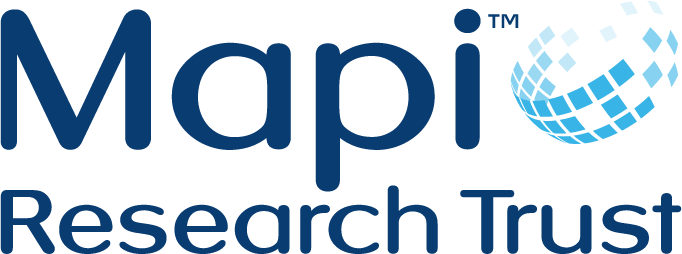Join this webinar to learn how to use the Obsessive Compulsive Drinking Scale (OCDS) to reflect patients’ obsessionality and compulsivity related to craving and drinking behavior during your next clinical research study. Attendees will learn to:
- Appreciate the relationship between OCDS and craving from a neurobiological and neuroanatomical perspective
- Understand how the OCDS relates to alcohol severity and alcohol withdrawal status
- Apply the OCDS in treatment assessment and follow-up
The 14-item OCDS, taking less than 5 minutes to administer, when translated into many languages, can be used to assess the severity of Alcohol Use Disorder (AUD), aspects of alcohol craving, and monitor treatment progress. It can be used as an aid in drug development and regulatory filings. Attendees will hear about the development/validity of the scale and how it can be used in various clinical and research settings, including correlations with brain imaging findings and during clinical trials.
Background on the OCDS
The Obsessive Compulsive Drinking Scale (OCDS) was an adaptation of a widely used scale that measures non-alcohol related obsessive thinking and compulsive behavior. It was recognized that some aspects of alcohol dependence or addiction had features that were similar in nature (although not biologically equivalent) to obsessive-compulsive disorder. That included intrusive and uncontrollable thoughts about alcohol use/drinking, neglect of role responsibilities because of these thoughts, and discomfort/anxiety because these thoughts could not be controlled – thus leading to compulsive (uncontrolled) alcohol use that could not be easily resisted or suppressed. It was also discovered during the OCDS development, that the core concepts measured by the scale share common elements with what is commonly described as, “alcohol craving.”
One important difference is that the OCDS measures more “cognitive and behavioral aspects of craving” and not necessarily various emotional aspects associated with it. In fact, early in its development, Dr. Raymond F. Anton, Author of the OCDS Health Research Scale, noticed that many individuals with alcohol use disorder would say they did not “crave alcohol” but state that they “did think about it often” and “could not stop thinking about it” especially when confronted with alcohol cues (peoples, places, and things associated with drinking). The OCDS captures these aspects of craving.
The 14-item self-administered (5 minutes) OCDS, although often thought of as an “alcohol craving scale,” was developed as a questionnaire that could 1) assess the need for treatment, 2) monitor progress during treatment and 3) potentially provide an instrument acceptable to clinicians and regulators that would be indicative of effective treatment response during drug development. In fact, there are differences in OCDS scores based on alcohol use disorder severity, and between social drinkers, early at-risk drinkers, and those meeting alcohol use disorder criteria seeking treatment. It has been correlated with brain imaging findings, thereby validating that alcohol-induced changes in brain areas/connections might underlie alcohol use disorder diagnosis and aspects of craving.
OCDS scores also can change over the course of treatment, indicating improvement or worsening core features of alcohol use disorder, and, in at least one study, the change in OCDS score was able to predict subsequent drinking behavior and relapse several weeks before it actually occurred. Since the OCDS has two questions about actual alcohol consumption, it can substitute for other measures of alcohol intake – but, if one desires a “pure estimate of obsessive thinking or compulsive use,” those two items might need to be removed in the scoring. Alternatively, a subscale (2-total) or factor (3-total) that does not contain those drinking items might be considered.
The concepts measured by the OCDS have captured the attention of many clinicians and scientists worldwide. It has been translated into at least 13 languages, has been used in clinical trials and pharmaceutical company registrations, and is employed as an aid in diagnosis and assessment during clinical care. It can be administered by paper or computer/tablet format and easily scored.
For more details visit eProvide: https://eprovide.mapi-trust.org/instruments/obsessive-compulsive-drinking-scale
Register today to learn more about the OCDS questionnaire and how to gain access for use in clinical research or academia.
Mapi Research Trust is the official licensor and distributor of more than 300 COAs, on behalf of their developers and copyright owners. Please visit our catalog to access the complete list of COAs managed by Mapi Research Trust, or visit our website for additional information on our services to developers and copyright owners.
Speakers

Raymond F. Anton, M.D., University Professor of Psychiatry and Behavioral Science at the Medical University of South Carolina; Scientific Director of an NIAAA funded Alcohol Research Center; Director of the Clinical Neurobiology Laboratory in the Department of Psychiatry
Raymond F. Anton, M.D. is an addiction psychiatrist and clinical neuroscientist. He is a Distinguished University Professor of Psychiatry and Behavioral Science at the Medical University of South Carolina, Charleston, where he holds the Thurmond Wellness Endowed Chair. He the Scientific Director of an NIAAA funded Alcohol Research Center and the Director of the Clinical Neurobiology Laboratory in the Department of Psychiatry.
Dr. Anton is a past president of the Research Society on Alcoholism (RSA) and is currently on the board of directors of the International Society for Biomedical Research on Alcoholism (ISBRA). He is an elected Fellow to the American College of Neuropsychopharmacology and a Distinguished Life Fellow of the American Psychiatric Association. He is also currently serving as Chair of the ACTIVE workgroup, a consortium of academics, government agencies and the pharmaceutical industry whose task it is to define the best methods for clinical trials for alcohol use disorders. He also holds a prestigious Career Development Award (K05) from NIAAA to assist in mentoring junior researchers and developing genetic and brain imaging technologies.
He is internationally known for his expertise in alcohol use disorder pharmacotherapy and the use of lab tests to identify various drinking patterns. He has published over 300 articles and book chapters and has active funding for incorporating neuroimaging and genetics into alcohol treatment trials. He also helped pioneer the clinical utility of the CDT blood test for the detection and monitoring of heavy alcohol use and has been a member of the International Federation of Clinical Chemistry workgroup on CDT measurement standardization. In June 2017, he was awarded the prestigious Henri Begleiter Award for Research Excellence by the Research Society on Alcoholism.

Piero Bindi, Author Relations Specialist, Author Collaboration Unit, Mapi Research Trust
Piero Bindi is an Author Relations Specialist who manages health research questionnaire distribution and licensing for Mapi Research Trust.
Who Should Attend?
- Clinical Researchers (both alcohol and related areas)
- Clinicians wanting to evaluate patients prior to treatment and monitoring outcomes
- Pharmaceutical company personnel looking for a craving/outcome measure during medication development and clinical trials
- Neuroscientists who want to understand brain differences in alcohol use disorder as it relates to craving and alcohol use disorder severity
What You Will Learn
- Appreciate the relationship between OCDS and craving from a neurobiological and neuroanatomical perspective
- Understand how the OCDS relates to alcohol severity and alcohol withdrawal status
- Apply the OCDS in treatment assessment and follow-up
Xtalks Partner
Mapi Research Trust
Mapi Research Trust is a non-profit organization dedicated to improving patients’ quality of life by facilitating access to Patient-Centered Outcome (PCO) information. Mapi Research Trust promotes scientific approaches in the PCO field and encourages exchanges between academics, pharmaceutical companies, and international organisations around the world in the service of incorporating the patient’s voice into every step of the development process of new treatments. For nearly two decades Mapi Research Trust has been a direct contributor to nearly every translational science research program incorporating PCO. We offer free and subsidized access to thousands of independent and academic research programs in over 130 countries every year. In this manner Mapi Research Trust contributes some 4 M€ a year in services that support academic research focusing on the improvement of patients’ lives.
You Must Login To Register for this Free Webinar
Already have an account? LOGIN HERE. If you don’t have an account you need to create a free account.
Create Account




